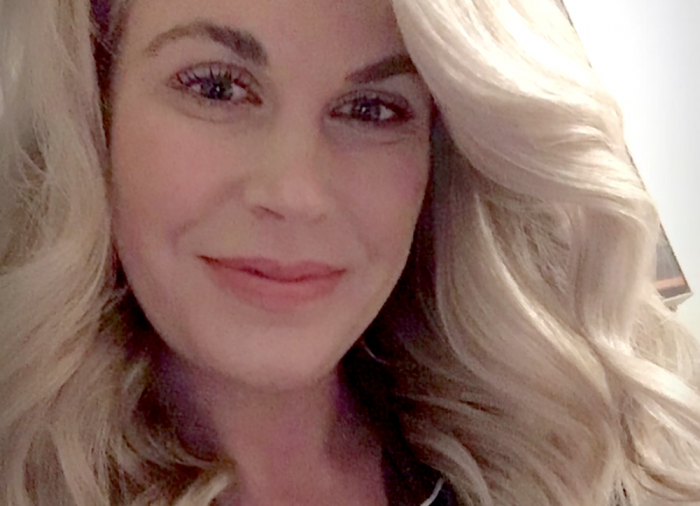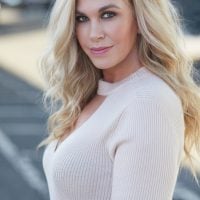Check out Elephant’s Continually-updating Coronavirus Diary. ~ Waylon
~~
“Nobody ever died of discomfort, yet living in the name of comfort has killed more ideas, more opportunities, more actions, and more growth than everything else combined.” ~ T. Harv Eker
~
I just reread this quote several times—“Nobody ever died of discomfort…”
That actually offers me comfort right now, because this morning I felt like I really might die of discomfort—the discomfort of feeling so alone.
Now, I know, I know: I’m never really alone. There’s always a higher power with me, and I have family members and friends I can call anytime.
But when we are in that place of loneliness, fear, sadness, and discomfort, it’s important not to try to jump right to gratitude or “positivity.” Sometimes crying and acknowledging how much things suck, or how heavy our feelings weigh on us, is the fast train to returning home to ourselves, where appreciation and gratitude occur naturally.
This morning, I woke early, around 5:30. It was my first morning secluded in a rental house with a single project: write my book. The book is a workout guide for the spirit that will help readers get fit on the inside, and it’s due to my publisher in three months.
Today, I was scheduled to write the first chapter, on spiritual stretching. The premise of the chapter is that stretching our spirit—expanding our comfort zone—is critically important to spiritual fitness, and that everything we’ve ever wanted is just on the other side of “comfy.” We can’t change our lives unless we’re willing to stretch beyond what we’ve known up to this point. Little did I know when I planned the book how much stretching we’d all be doing when I wrote that chapter!
I’d rented a lake house in the Berkshires to focus on writing, away from New York City noise and the distractions of home. But what I could not anticipate when I booked this house months ago was that I (and you!) would be a month into quarantine due to the COVID-19 pandemic—and, as a result, that I’d already be feeling so completely alone and isolated from humankind. (I normally live alone in an apartment just outside Manhattan.)
I’ve been sleeping way more than usual this past month, and when I wake up, I don’t feel refreshed and ready to take on the world. I feel like going back to bed. I feel lethargic.
This discomfort I think we are all feeling is grief.
Grief is like this virus, in that it dictates how long the discomfort will last. There’s no amount of positive thinking that can just make it “go away.” Sure, our mental disposition and spiritual exercises absolutely help with how we manage, heal, and respond. But ultimately, the sooner we can accept that this is and will continue to be a challenging time, the sooner we can start feeling like ourselves again. This is what I am learning.
But as I lay in bed until about 8:30 this morning, the discomfort started taking over. And so I decided to take charge. To begin with, I named my discomfort. Now, we’re often advised to name our feelings as a way of acknowledging them, but I like to do this with a little twist: I “named” my discomfort “Debbie,” and then tried to remind Debbie that I was in charge, not her. In my head, I heard one of my favorite speakers and authors, Dr. Susan David, saying, “We own our emotions, they don’t own us,” and I wondered if Susan ever gets visits from Debbie. I’m sure she does.
But I also heard Susan saying, “Write what you’re feeling. Tell the truth. Write like nobody’s reading.” She spoke about this in a recent TedTalk—it’s the advice her eighth-grade teacher gave her after her father died, a teacher who did not buy into her story of triumph over grief after losing her father. And this resonated with what we’re all experiencing.
Triumph over grief…that’s what seems to be expected of us, now and whenever times get tough, right? Be grateful! Let it go!
After FaceTiming my parents recently, that’s the message I received, too. I’m not blaming them. They love me. But I think sometimes when people try to solve our problems for us, they don’t truly see us. I expressed that I was tired. Writing a book is hard, I told them. It’s hard to focus right now. The hot water isn’t working in this house. I feel so lonely. I’m really tired of being alone. And there it was—the truth—I feel lonely. This is a challenging time.
And so with Dr. Susan’s words echoing in my head, I changed from my pajamas to my sweats (my self-isolating routine), and walked a few minutes down the road to get coffee—a matcha latte with almond milk—and some bagels. It was cold and rainy, which added to my sullen mood. An older gentleman on the sidewalk showed his respect (and intelligence) by walking away from me and practicing social distancing, but waved and smiled. I wanted to hug him, but I couldn’t, so I just smiled and said, “Hi! Good morning!” in a cheerful voice.
I thought to myself.
As I walked back to the house with drinks and bagels in hand, I noticed the fear inside me bubble up. It said things like, Who cares what you have to say? You should just sleep. Don’t you feel so alone? What are you even doing here?
I walked in the door, put my food and drinks down on the black granite countertop, and texted my childhood friend, Allison. “I feel so lonely,” I typed. “I really don’t want to do life by myself anymore. How are you? Trying to focus. Wish you were here.”
My phone rang two seconds later. Allison was on the other end, out walking her dogs for probably the third time already this morning. I was thinking how nice it would be for her to be in this house with me. To have breakfast with her.
But then as I drank my coffee, I realized we were having breakfast together. She listened to me with no judgment as I got out all my feelings.
If you have someone in your life who can do this for you, consider your rare good fortune. If you don’t, don’t panic. Ask yourself how you can cultivate that. Is there someone you can offer that rarest of gifts to? We receive most when we give the most freely.
As I spoke, she listened. I felt seen, heard, understood, comforted. We started to laugh about life’s absurdities and how everyone is struggling and coping in their own unique way right now. She told me she listened to a podcast recently about a well-known author struggling to write her book, and I remembered I’m not alone. I am a human having a human experience. I have dared to put myself and my story out into the world in a meaningful, vulnerable way, and it is appropriate that lots of feelings are coming out. I’ve never written a book before.
In this uncertain time, there is a lot of talk about people being bored or just trying to make it through the day. I get it. It would be enough for me just to dip my toes into a friend’s hot tub right now, while navigating the collective grief in the world, but that is not my assignment. I’m essentially being asked to compete in the Olympics, not chill in a hot tub, meaning I have a huge project to complete at a time when it is challenging to stay focused and awake. Some say, “What a perfect time to write a book!” And in many ways, they are right, and I agree.
But then I remember again that grief is like this deadly and contagious virus: it sets the timeline, and I’m discovering that it is best to accept that, and show up in this new “normal” the best way I know how to show up. And so I begin to forgive myself for not feeling like any of this is perfect or easy.
But one thing is certain: mental, emotional, and spiritual fitness is needed now more than ever. Stretching our comfort zone isn’t just important for us personally, so we can transform our own lives and reach our own goals; it is necessary for the health and safety of the world.
Stretching is no longer “optional.” It has been thrust upon us, ready or not. Flexibility and resiliency are now required of us all, regardless of how we feel about it.
I read a news article recently that argued that after this pandemic, the world will never be the same again. My breath seized up with momentary panic; in our isolation and claustrophobia, so many of us are waiting desperately for things to get back to “normal.”
But the truth is, I believe the world needs to change, starting with each of us and how we choose to respond—not just when things are going well, but when the whole world seems to be falling apart.
This experience could be an opportunity to make excuses and go to pieces. Or it could be the ultimate pause-and-reset button we didn’t even know we needed—the impetus to stretch all of us so we emerge truly transformed for the better.
And so my mind reframed how I viewed the article’s premise. And I thought, Thank God.

 Share on bsky
Share on bsky







Read 0 comments and reply